CERTAIN WOMEN Review
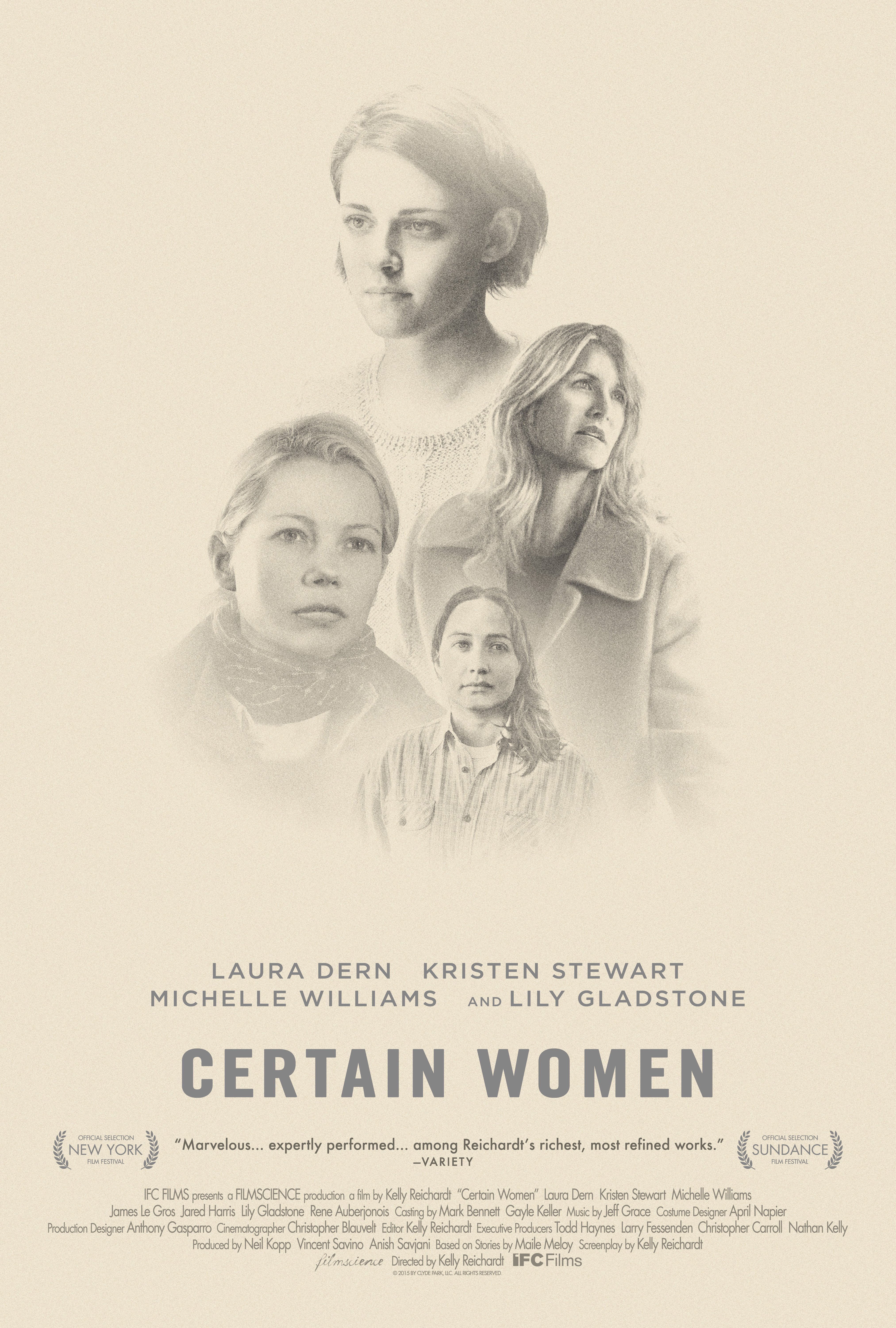
Director: Kelly Reichardt
Genre: Drama
Year: 2016
Few American directors are as attuned to the rhythms of everyday life as Kelly Reichardt. What distinguishes Reichardt from certain arthouse directors working in a similar vein of documenting the seemingly banal ordeals of day-to-day life is that her writing tends to be much more meticulous and pointed than the world cinema auteurs who lean on psychological opacity and narrative obfuscation. Reichardt generally doesn’t leave us in much doubt as to what these characters desire, so the interest lie more in the how the characters awkwardly and spontaneously maneuver situations they find themselves in.
In CERTAIN WOMEN, Kelly Reichardt introduces us to the stories of four women living in rural Montana, which suggest a richness of detail and scope existing somewhere beyond the frame. These might seem like small stories, but the expansive nature of the filmmaking and writing lends itself to a rich, contemplative viewing experience.
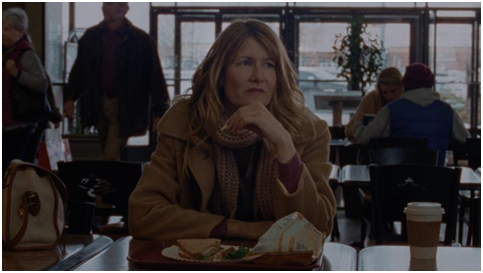
Montana may be Trump territory, but I’m sure none of these women are voting that way
Many critics have commented on the slightness of the first two stories in comparison with to the third, but that doesn’t give full credit to the impressive tonal balance that Reichardt strikes in her first hour. Laura Dern plays an attorney who unsuccessfully attempts to tell her client Fuller (Jared Harris) that he lacks the standing necessary to sue his company for an injury he suffered while on the job. In this section, Reichardt achieves a surprising degree of levity with material that could be played for thriller-esque dread and suspense.
When Fuller tells Laura that he might have to take up arms to vent his frustration, Laura’s reaction is one of bewilderment — she is unsure of how to react to such a strange and troubling admission. During a hostage situation that Fuller instigates, the authorities act with an air of bemusement and when Laura enters the building, Reichardt plays the expected suspense against a strain of light humor. In finding the right uneasy, but not excessively morbid, tone to make potentially movie-ish moments resonate with the feel of real life, Reichardt imbues the film with the proper weight.
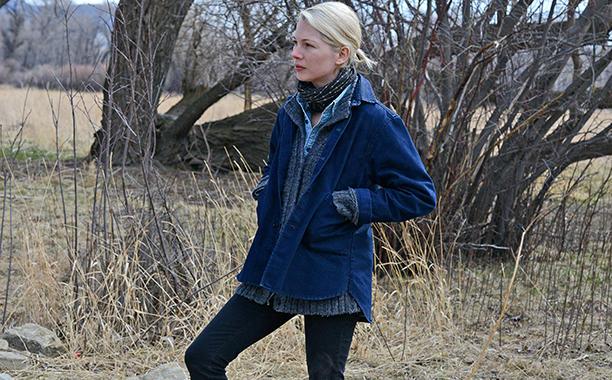
Michelle Williams’s segment brings back memories of boring classes on sedimentary rock
In the film’s second section, Gina (Michelle Williams) and her husband Ryan (Jared Le Fros) attempt to negotiate with an old man for his sandstone, which Gina wants to use to build their home. Reichardt finds subtle breaks in the Midwestern affability that the characters awkwardly try to maintain, as it becomes more apparent that the old man is not all there and might attach sentimental value to his sandstone. Ryan’s attempt to take the pressure off of the old man could suggest either a kind gesture to a potentially exploited old man or a challenge to the authority of his wife.
The ambiguity of the old man’s behavior is of interest — it’s never fully clear how dismayed he is about his sandstone. whether his conversational digressions are evasive tactics or just the sign of a man unable to follow the thread of a conversation. A grace moment shared between Gina and the old man involving bird songs helps to balance the tone after some suppressed hostility becomes apparent.
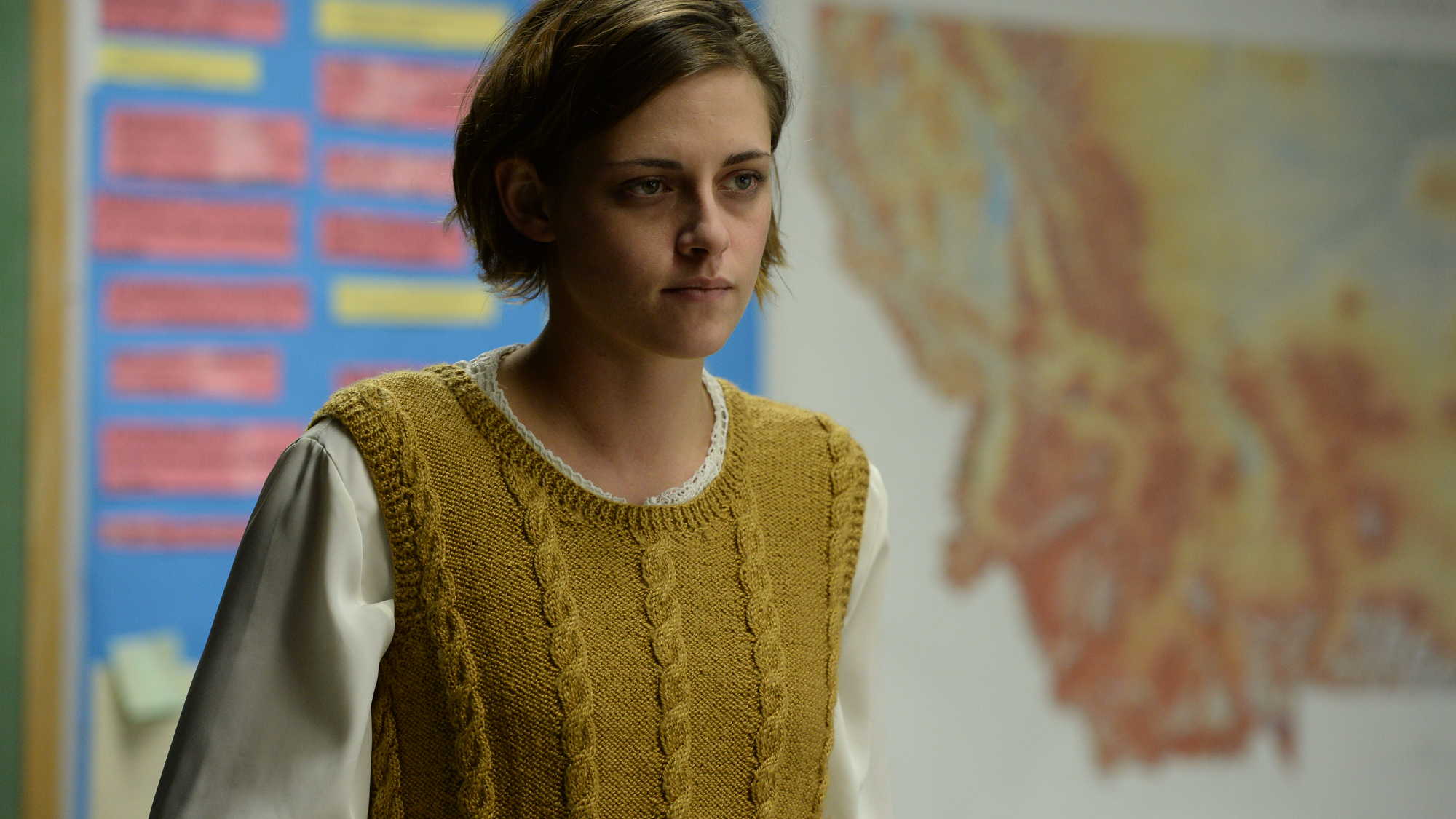
Reichardt deglamorizing K Stew with that glorious sweater
The film ends with a story involving a Rancher (Lily Gladstone) and her burgeoning friendship with Beth (Kristen Stewart), a lawyer who teaches night school classes on education law. The Rancher and Beth go to a diner after class, where Beth fills up before her four hour commute home. Reichardt makes it apparent through Beth’s demeanor and lack of listening skills that she’s distracted by everything that’s going on in her life and unaware of the romantic attachment that the Rancher is developing for her.
The clear, unrequited nature of the Rancher’s affections sets narrative expectations for the end of relations between these two women that does come to pass. It’s a credit to Reichardt’s direction that this inevitable moment packs an emotional wallop, speaking to the diverging perspectives of the women on what was for one a perfunctory friendship, and for another a destined opportunity to transcend loneliness.
Reichardt underlines the Rancher’s affections for Beth with an alternately beautiful and awkward scene in which the Rancher takes Beth on a horse ride to the diner. One might take issue with the way Reichardt loads every glance with a certain significance — while Reichardt is trying to capture the texture of everyday moments, the overly fraught nature of each wordless moment suggests a director trying to build up emotion for a final exchange of gestures. Rather than allowing a sense of randomness to pervade her moments of banal interaction, Reichardt goes for the gut in a deterministic manner.
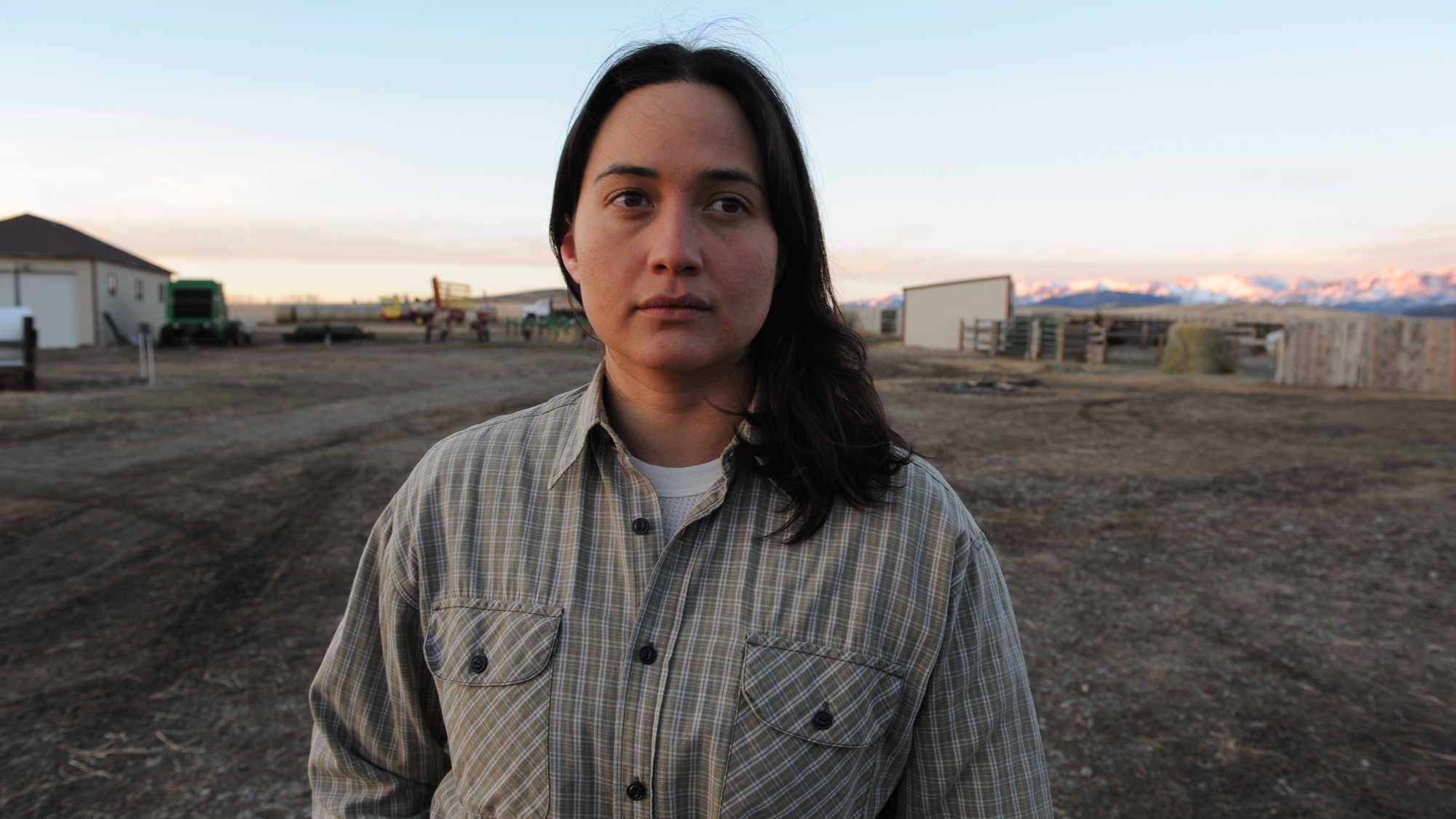
If the ranching thing doesn’t work, Kim and Kanye need a bodyguard
Despite the slightly manipulative nature of the filmmaking, there’s no denying Reichardt’s mastery of rhythm, which is in full force during a melancholy sequence in which the Rancher drives to Beth’s city to try and find her. The sequence is a moving testament to the solitude of living in the rural areas of Montana that the film captures in its gorgeous landscape tableaus.
Reichardt starts and ends this section of the film with enthralling scenes of the Rancher tending to her horses by herself, without a clear indication of whether anyone works with her or who the ranch belongs to. Through these gaps in information, CERTAIN WOMEN invites speculation from the viewer regarding the broad scope of these women’s living situations. It is in these informational ellipses and silences that Reichardt speaks to the broad spectrum of detail, emotion and experience that a film like CERTAIN WOMEN cannot fully contain.
Verdict: Recommend



